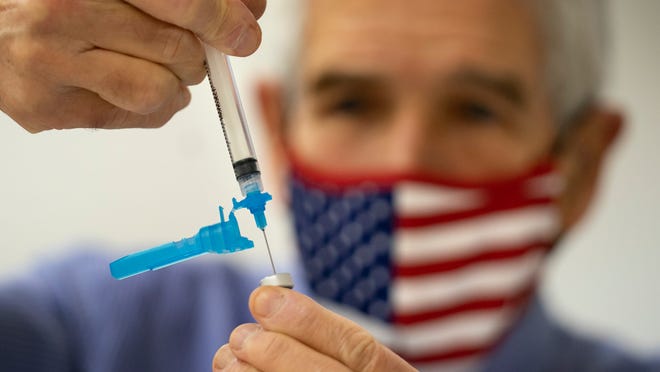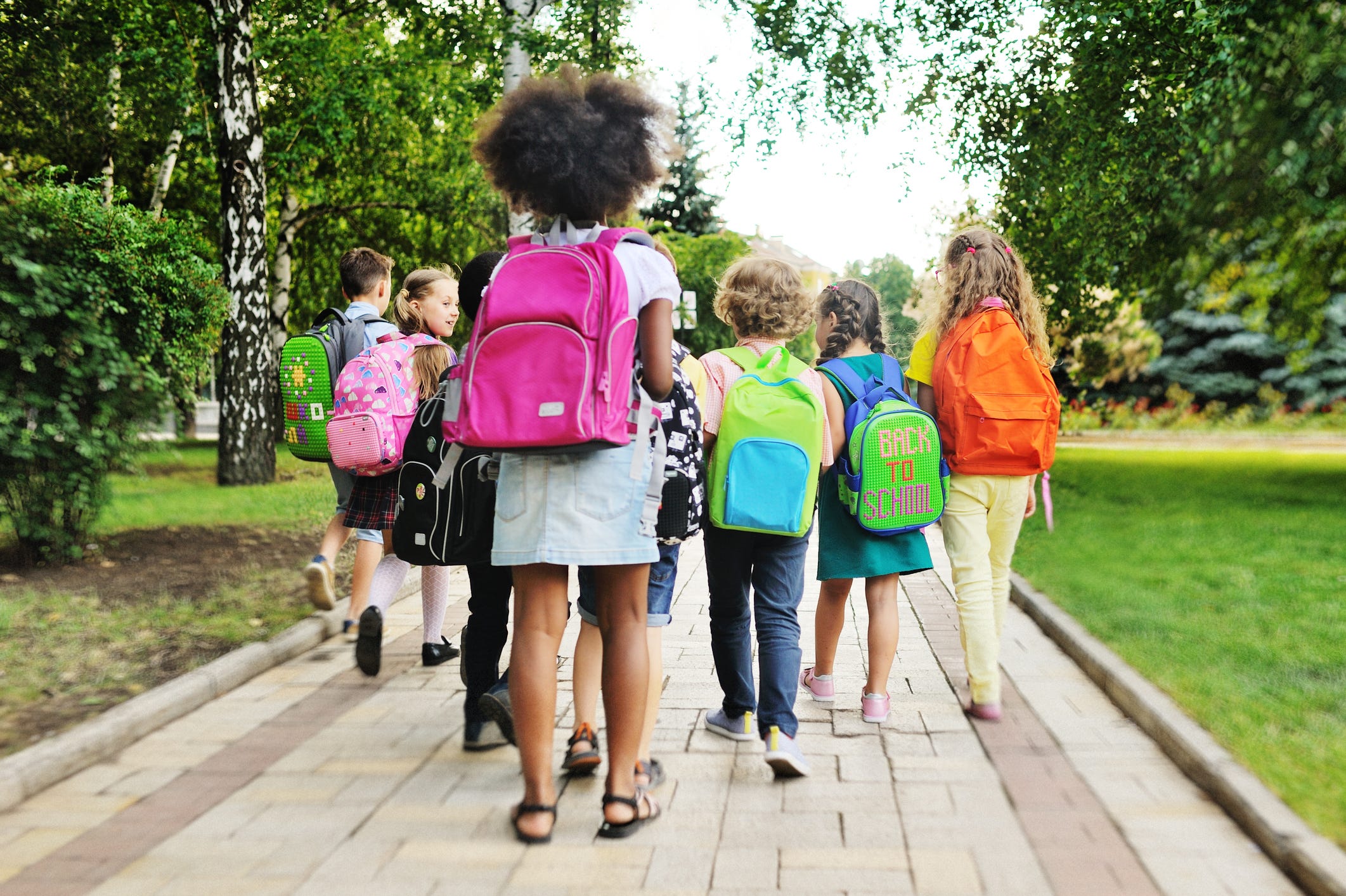
The rapid spread of the omicron coronavirus variant has prompted flights to be canceled, events to be scaled back and sports stars to be sidelined as the nation celebrates the holidays amid a new wave of infections clouded by uncertainty.
Dozens of flights have been canceled, and at least two airlines are blaming omicron. United spokesperson Josh Freed cited "the nationwide spike in omicron cases this week" in a statement about over 200 flight cancellations. A Delta statement shared with USA TODAY said the more than 160 flight cancellations were caused by a "combination of issues, including but not limited to, potential inclement weather in some areas and the impact of the omicron variant."
In New York City, Mayor Bill de Blasio announced Thursday that the city's iconic New Year's Eve Times Square celebration will be scaled back, and officials are implementing additional safety precautions.
And the NFL continues to deal with COVID-19 fallout during its first week of new protocols. Dozens of players have been added to the reserve list in the past few days, including several big names.
The disruptions may mark a new phase of the pandemic, where health officials are increasingly signaling that many, if not most, Americans will become infected in coming months. But large swaths of the population appear to be well protected from severe illness through vaccines, especially the 64 million people who have received a booster dose.
Even so, hospitals could still be overrun – especially with unvaccinated and vulnerable patients – if cases keep rising.
And the impact of millions of mild infections remains unclear. On Thursday, those concerns prompted federal officials to loosen isolation requirements for health care workers in an effort to prevent staffing shortages.
Also in the news:
► The Biden administration on Dec. 31 will lift its temporary travel restrictions on eight southern African countries, the White House said Friday. Restrictions were put in place last month in an attempt to slow the spread of the omicron variant.
► COVID-19 cases are continuing to emerge on cruise ships. Among the latest outbreaks: MSC Seashore, which was scheduled to disembark passengers Thursday, sailed with 28 passengers who tested positive for COVID-19.
► Omicron, in a matter of a few weeks, pushed the United States to report cases faster than the delta variant took months to build up to. The nation reported more than a quarter-million cases on Wednesday alone, preliminary reports from Johns Hopkins University show. That makes Wednesday's count at least the fifth-worst single day's reporting of the entire pandemic.
► New Jersey will pay about $53 million to settle claims that the state’s negligence contributed to the deaths of more than 100 veterans at state-run homes during the pandemic, attorneys representing the bulk of the claimants said Thursday.
📈Today's numbers: The U.S. has recorded more than 51 million confirmed COVID-19 cases and more than 815,000 deaths, according to Johns Hopkins University data. Global totals: More than 278 million cases and 5.3 million deaths. More than 204 million Americans – 61.7% – are fully vaccinated, according to the CDC.
📘 What we're reading: New treatments against COVID-19 are coming – including a pair of antiviral pills, one from Pfizer and one from Merck. Will they help combat the omicron onslaught? Read the full story.
Keep refreshing this page for the latest news. Want more? Sign up for USA TODAY's free Coronavirus Watch newsletter to receive updates directly to your inbox and join our Facebook group.
Pandemic laws limit ability to get answers on COVID-19 spread in hospitals
After Amanda Wilson lost her 15-year-old son, Braden, to COVID-19 early this year, she tried to honor his memory. But in one area, she hit a brick wall: attempting to force change at the California hospital where she believes her son contracted COVID-19 in December 2020.
While seeking treatment for a bleeding cyst, Braden was surrounded for hours by coughing patients in the emergency room, Wilson said. Yet, she has been unable to get the hospital to show her improvements it told her it made or get a lawyer to take her case.
“I was pretty shocked,” Wilson said. “There’s truly no recourse.”
A previous Kaiser Health News investigation documented that more than 10,000 people tested positive for COVID-19 after they were hospitalized for something else in 2020. Yet many others, including Braden Wilson, are not counted in those numbers because they were discharged before testing positive. Still, the KHN findings are the only nationally publicly available data showing rates of patients who tested positive for COVID after admission into individual U.S. hospitals. Read more here.
— Lauren Weber and Christina Jewett, Kaiser Health News
COVID-19 test shortage is frustrating Puerto Rico visitors
Testing requirements are nothing new in the age of COVID-19, but travelers are finding it more difficult – and more expensive – to visit certain domestic destinations amid the latest testing shortage.
Puerto Rico resident Sarah Molinari was looking forward to spending time in New York this week to catch up with family and celebrate the holidays. What she didn't see coming were the hours spent scrolling through COVID-19 testing center websites to make sure she could fly home Tuesday.
While traveling to the U.S. territory used to be a breeze for Molinari and other vaccinated travelers, that changes Monday when Puerto Rico starts requiring all travelers to test negative for COVID-19 before arriving.
The new rule comes as the U.S. finds itself in the midst of yet another coronavirus test shortage, with consumers facing limited sales at retailers and long lines at testing centers. Read more here.
FDA OKs second antiviral pill to treat COVID-19, Merck's molnupiravir
A day after authorizing the first antiviral pill to treat COVID-19, the Food and Drug Administration on Thursday authorized a second: Merck’s molnupiravir.
The prescription medication, which can be taken at home, is designed to stop the progression of COVID-19 from mild to severe symptoms in people at high risk. In data presented to an FDA advisory panel in late November, the drug was shown to prevent 30% of infections from progressing – far fewer than Pfizer’s antiviral Paxlovid, which the FDA authorized on Wednesday.
Molnupiravir, produced also by Ridgeback Biotherapeutics should be given within five days of COVID-19 symptoms beginning and should only be given to adults because it may affect bone and cartilage growth, the FDA noted. The drug is not recommended for use during pregnancy because animal studies suggest it may damage the fetus.
Several doctors told USA TODAY that they would only prescribe molnupiravir if they had no other alternative, and the FDA seemed to echo that by noting in its authorization announcement that the drug is to be used by people at high risk for severe disease “for whom alternative COVID-19 treatment options authorized by the FDA are not accessible or clinically appropriate.” Read more here.
– Karen Weintraub, USA TODAY
Positive COVID-19 test? Here’s what to do.
Testing positive for COVID-19 starts a confusing, disruptive and at times frightening process – one that millions of Americans will likely go through in coming weeks as the omicron variant rapidly spreads this holiday season.
First, you need to isolate. That’s a more intense version of quarantining – it means cutting off contact with other people as much as possible, so that you reduce your chances of infecting them. It also means forgoing travel, not going to work and even limiting contact with people in your own household who aren't infected.
The CDC says it’s a necessary step whether you’re vaccinated or unvaccinated; showing symptoms or feeling fine.
Everyone who tests positive for COVID-19 should also monitor their symptoms. And people who are unvaccinated or at high risk for severe disease should be extra vigilant for symptoms that might require emergency care. Call your doctor for early treatment options.
How long should you isolate? How long will I be contagious? What if you are a close contact with someone who tested positive? Here’s what you should know about omicron and COVID this holiday season.
Contributing: The Associated Press










